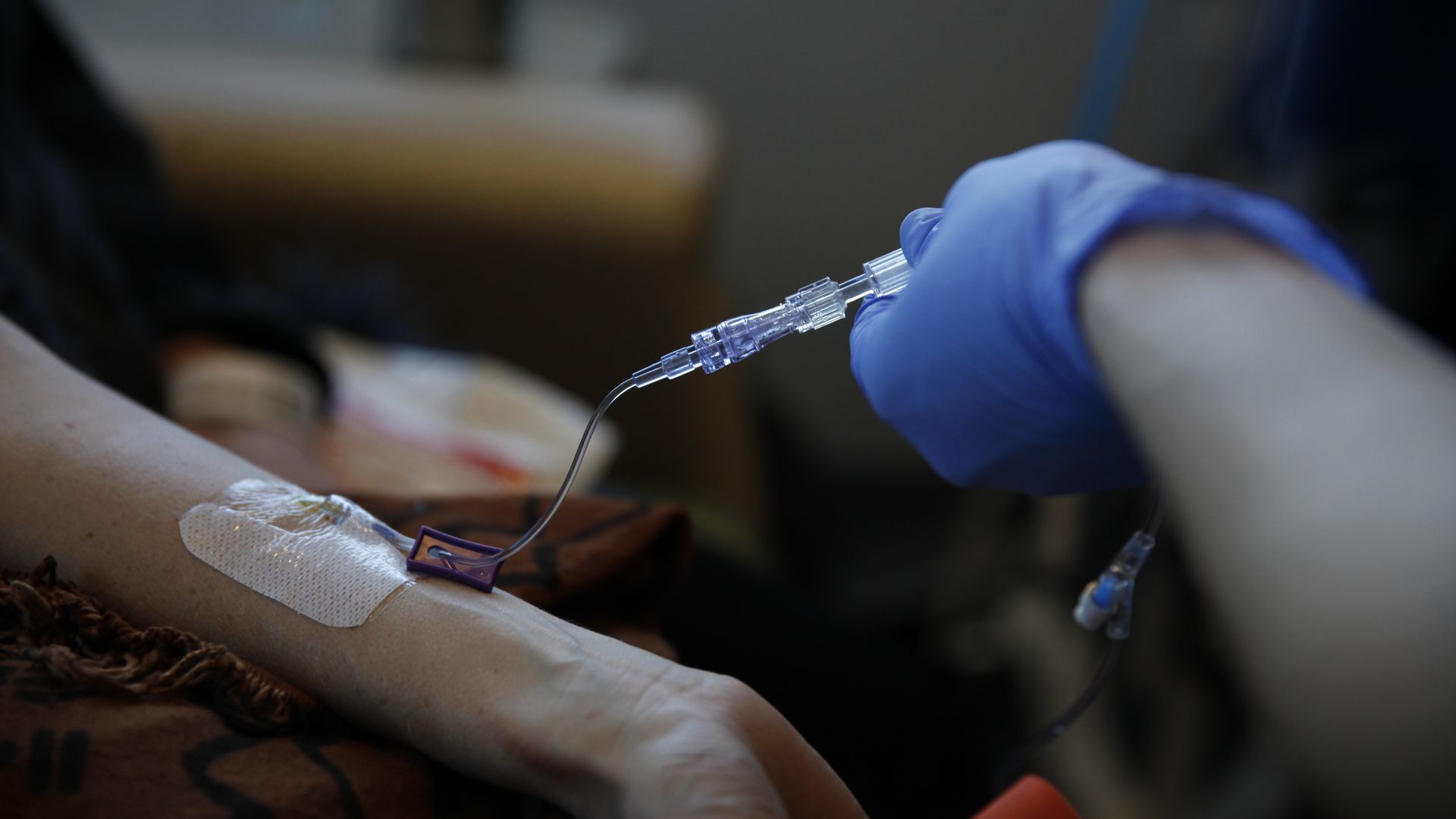Waiting for Biden's drug pricing plan
Add Axios as your preferred source to
see more of our stories on Google.

A nurse administers an IV drug. Photo: Lea Suzuki/The San Francisco Chronicle via Getty Images
The Biden administration axed Trump's proposed rule that would have tied some Medicare drug prices to lower overseas prices, but that regulation in its current form had almost no chance of being enacted.
What to watch: Biden's recent executive order mandates HHS to create a "comprehensive plan ... to combat high prescription drug prices and price gouging" by Aug. 23. That plan will give the clearest picture yet of what Biden will try to do to lower drug prices.
The state of play: The Trump administration's "most favored nation" rule was tied up in the courts and likely illegal based on procedural grounds.
- However, rescinding the rule "does not reflect any judgment by HHS regarding future policy," the federal government said in its comments.
- That means Biden isn't necessarily giving up on changing how Medicare pays for Part B drugs, but any new version of that rule would likely have to be scaled back to avoid industry lawsuits.
Between the lines: Federal drug pricing policy remained basically unchanged during the Trump years, and that's pretty much how it's been under Biden, too.
- However, Biden's executive order told the Commerce Department to kill a proposed rule that would have prohibited the federal government from using "march-in rights" based on price — a proposal that was practically written by the pharmaceutical industry.
- Democrats' reconciliation bill also includes "hundreds of billions in additional savings by lowering the price of prescription drugs" through Medicare negotiation of Part D drugs, which several senators have pushed for and which drug companies vehemently oppose.
The bottom line: There are a handful of legislative and regulatory drug pricing proposals floating around. Drug companies are fighting them, and want to preserve one thing more than anything else.
- "To continue to have the ability to set launch prices. That's the Holy Grail," a pharmaceutical lobbyist said.
